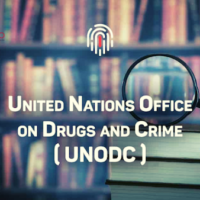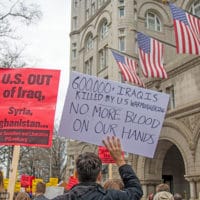-
Civic-Military Union: The Chavista Paradigm that defined the latest events in the War Against Venezuela
What happened last Monday, May 4, on the coast of the town of Chuao, municipality of Santiago Mariño in the state of Aragua, has left a mark on the history of the Bolivarian process due to the combined action of the Bolivarian National Armed Forces and the citizenry, in particular a group of fishermen, police and members of the Bolivarian National Militia.
-
President Maduro: 4 new mercenaries captured–U.S. led military incursion
Venezuelan President, Nicolás Maduro, confirmed the capture in the last hours of 4 more mercenaries involved in the attempted military incursion along the Venezuelan coast, which began on May 3.
-
Venezuela: Two U.S. citizens captured in botched coup attempt
Two former green berets were arrested in a second failed assault on Venezuelan shores on Monday.
-
Experts warn of new nuclear arms race after Trump signals U.S. withdrawal from START Treaty
While much of the corporate press has blamed Russia and China for the sudden failure of multiple longstanding nuclear treaties, experts put the blame on squarely on the Trump administration.
-
Venezuela thwarts invasion attempt by mercenaries
Venezuelan officials reported that a group of mercenaries attempted to invade the country on Sunday but were stopped by the country’s army and police.
-
Empire Files: U.S. empire exploits COVID-19 for more war
Abby Martin breaks down all the hidden acts of US foreign policy aggression under the cover of the COVID19 pandemic.
-
Colombia’s government acts like a doormat for the United States—and its people aren’t going along with it
With the U.S. government now absurdly saying that Venezuela is the source of narco-trafficking, even though all evidence pointing to narco-trafficking is rooted in Colombia, the pressure on Colombia to deal with its drug problem is now lifted.
-
Letter from President Maduro as U.S. threatens Venezuela with war
In greeting you, with affection, I take the liberty of addressing you on the occasion of denouncing the severe events taking place against the peace and stability of Venezuela, at a time when the concern of the States and Governments should be focused on the protection of the life and health of their citizens, due to the acceleration of the COVID-19 pandemic.
-
Trump sends gun boats to Venezuela while the World partners to fight a deadly pandemic
On April’s Fools Day, U.S. President Donald Trump gave a press conference where he announced a new “counter-narcotics effort” by U.S. Southern Command. “We’re deploying additional Navy destroyers, combat ships, aircrafts and helicopters, Coast Guard cutters…doubling our capabilities in the region,” he said
-
Has America reached its endgame in Afghanistan?
In an extraordinary statement titled “On the Political Impasse in Afghanistan,” Washington has admitted to the failure of Secretary of State Mike Pompeo’s mission to Kabul on March 23, which was taken up to heal the political rift among Afghan politicians and to urge them to form an inclusive government so as to implement the peace agreement signed in Doha on February 29.
-
12 ways the U.S. invasion of Iraq lives on in infamy
While the world is consumed with the terrifying coronavirus pandemic, on March 19 the Trump administration will be marking the 17th anniversary of the U.S. invasion of Iraq by ramping up the conflict there.
-
The prospect of peace in Afghanistan is real—and Pakistan is the key player
The U.S.-Taliban peace agreement signed in Doha on February 29 must be put in proper perspective. Indeed, there can’t be two opinions that the curtain is coming down on what U.S. President Donald Trump called the “endless war” in which America squandered away over a trillion dollars and lost thousands of lives with no victory in sight. Equally, without a doubt, this is the finest hour of Pakistan’s statecraft since the country’s creation in 1947.
-
A little help from their friends: How Vietnam withstood largest bombing campaign in human history
Between 1965 the 1975, the United States Air Force dropped over three times more bombs on the Southeast Asian nations of Vietnam, Laos and Cambodia than the total tonnage dropped by the Allies during World War II.
-
A World no longer shaped by Atlantic powers
The annual Munich Security Conference that took place February 14-16 this year turned out to be an iconic event, drawing comparison with the one held in the same Bavarian city on February 10, 2007, where in a prophetic speech Russian President Vladimir Putin had criticized the world order characterized by the United States’ global hegemony and its “almost uncontained hyper use of force—military force—in international relations.”
-
Witnessing the hell that a migrant can face
The Saudi-UAE war on Yemen has been going on for five years. Despite recent peace talks leading to an improvement in aid distribution, the violence has escalated in certain key districts of Yemen over the past two weeks. Since January, 35,000 Yemenis have been displaced from their homes, an indicator of the dangerous situation in the country.
-
Is the World about to witness the end of the war in Afghanistan?
Neither the Indian political leadership nor the “deep state” seems to grasp that the geopolitics of the South Asian region is transforming with far-reaching consequences.
-
Sure, but Venezuela is the Narco State…
Venezuelan analyst Oscar Forero contextualises the accusation that Venezuela is immersed in illegal drug activity.
-
U.S. uneasy as Iraq gets new prime minister
The protest movement in Iraq, which is now entering its fourth month, has come to be the principal instrument for Washington to surreptitiously advance the broader geopolitical confrontation with Iran that is being played out within the country.
-
Libya is being torn apart by outsiders
Ghassan Salamé is the head of the United Nations Support Mission in Libya. He took over this job in 2017, six years after the catastrophic NATO war on Libya. What Salamé inherited was a country torn into shreds, two governments in place—one in Tripoli and one in Tobruk—and one civil war that had too many factions to name.
-
The war in Libya will never end
General Khalifa Haftar and his Libyan National Army (LNA) continue to partly encircle Libya’s capital, Tripoli. Not only does the LNA threaten Tripoli, but it is within striking distance of Libya’s third-largest city, Misrata.



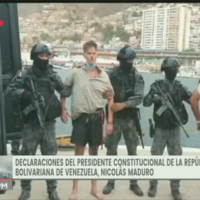


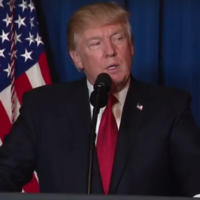

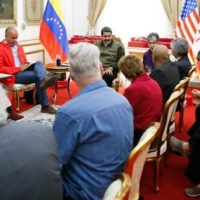

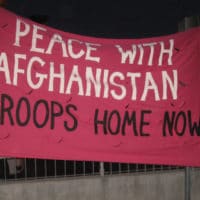

![Secretary of State Michael R. Pompeo participates in a signing ceremony in Doha, Qatar, on February 29, 2020. [State Department photo by Ron Przysucha/ Public Domain]](https://mronline.org/wp-content/uploads/2020/03/peace-signing-200x200.jpg)




